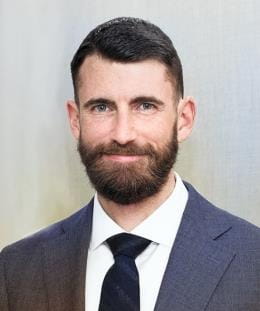Video company fails to claim copyright over aerial
21 September 2021

In 2016, the Clipper Round the World Yacht Race, an international round the world yacht race event, took yachts past the Queensland coast.
The company which leases and operates the Abell Point Marina at Airlie Beach where the yachts would stopover, Emprja Pty Ltd trading as Abell Point Marina (APM), proposed to host a welcome party at the Marina during the race participants' stopover in January 2016.
Project 64, a company which agreed to sponsor APM's welcome event, also agreed to provide APM with video footage of the welcome party and stopover. Project 64 procured the services of Whitsunday Aerial Solutions Professionals Pty Ltd (WASP) to take drone video footage of the event.
In 2018, WASP commenced copyright infringement proceedings again APM for using the 2016 video footage again and for authorising third parties to also use the video footage to promote the 2018 Clipper Race. WASP alleged that APM was permitted to use the video footage for the "sole purpose" of promoting the 2016 Clipper Race.
Under s98(3) of the Copyright Act 1968 (Cth) "in the absence of an agreement to the contrary", where a party makes for valuable consideration an agreement with another party for the making of a "cinematograph film", the commissioning party is the copyright owner over the film.
In the absence of a written agreement, Judge Baird considered all correspondence, invoices, witness statements and the subsequent conduct of the parties to determine the scope of the agreement and whether there was, as alleged by WASP, an agreement that WASP owned copyright in the video footage.
There was no clear evidence to suggest that there was a discussion between the parties as to copyright ownership. In fact, Judge Baird commented that the evidence suggested that all of the parties, including WASP, had "not turned their minds to the matter" until 2018.
In the absence of contrary evidence, Judge Baird concluded that the oral agreement between Project 64 and WASP satisfied s 98(3) and therefore Project 64 was the copyright owner of the 2016 footage.
Judge Baird also rejected WASP's assertion that, even if it did not own copyright in the footage, the 2016 aerial footage was commissioned by Project 64 for the limited purpose of APM promoting the 2016 Clipper Race.
As Project 64 had commissioned the video footage as part of its sponsorship agreement with APM, Judge Baird considered the email correspondence between Project 64 and APM to determine the scope of APM's licence to use the video footage.
It was clear that Project 64 had agreed to sponsor APM's welcome event and part of this agreement was that Project 64 would provide APM with video footage of the stopover and Airlie Beach. There was no limitation of use specified nor any limited purpose proposed. The fact that Project 64 was no longer a video production company supported the conclusion that it was unlikely it would impose a limitation on APM's use of the video footage.
On this basis, Judge Baird found that the video footage was licenced to APM without restriction.
In an attempt to retrospectively 'confirm' copyright ownership in the 2016 footage, WASP entered into a 'Confirmatory Deed – Copyright ownership' with Project 64 in April 2018. Under the Deed, the parties agreed that WASP owned the copyright in the 2016 Clipper Race video footage.
WASP and Project 64 then also entered into a Deed of Assignment in October 2018 which stated that, to the extent that Project 64 did own copyright in the 2016 footage, it was assigned to WASP "with effect from the date of creation" of the footage.
As Judge Baird had concluded that there was no evidence of an oral agreement to vest copyright in WASP to begin with, the Confirmatory Deed could not operate to confirm any copyright vesting in WASP.
As there was no agreement for copyright to be held in WASP, there was no equitable assignment capable of being perfected in 2018. The assignment to WASP would be effective from the date the deed had been entered into, in 2018.
Although WASP had been assigned copyright in the 2016 video footage, under s 196 (4) of the Copyright Act 1968 (Cth), the assignment was subject to the terms of the licence which Project 64 had expressed in favour of APM in 2016. Although the assignment would enable WASP to bring claims against third party infringers of the video footage, it would not assist WASP in the present case as APM had been granted an unrestricted licence to use the video footage.
Authors: Ferdous Bahar, Lawyer; and Lisa Ritson, Partner
The information provided is not intended to be a comprehensive review of all developments in the law and practice, or to cover all aspects of those referred to.
Readers should take legal advice before applying it to specific issues or transactions.







Sign-up to select your areas of interest
Sign-up